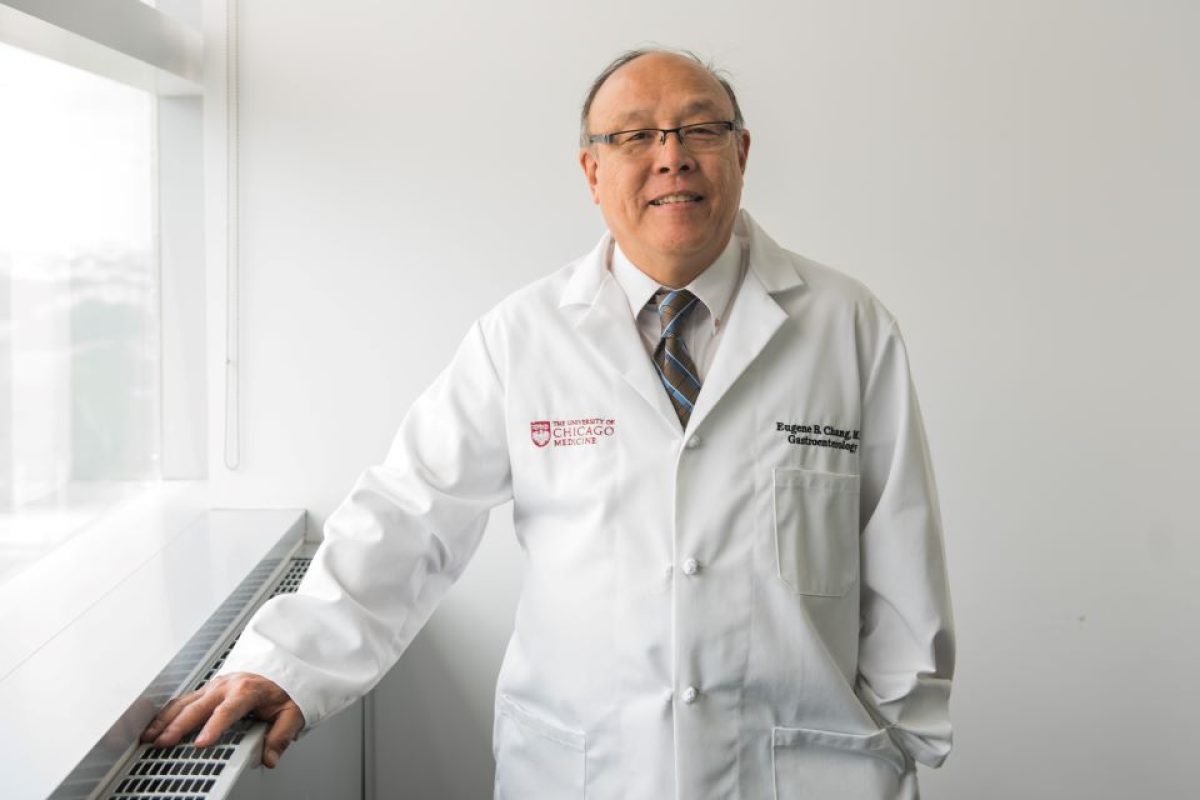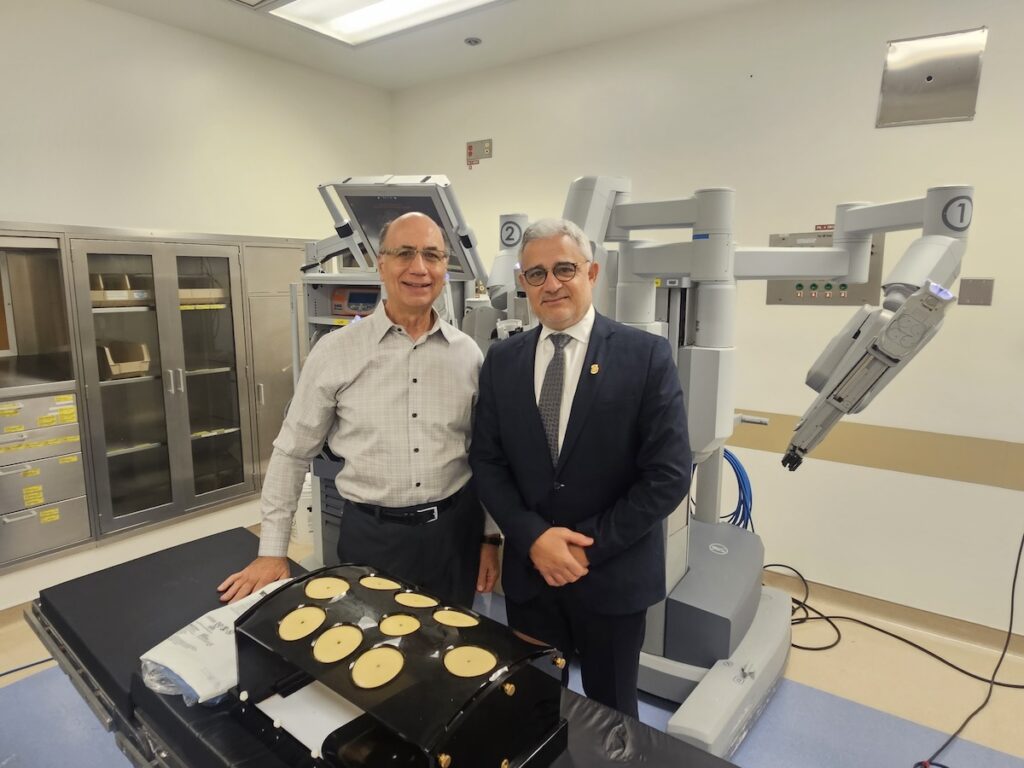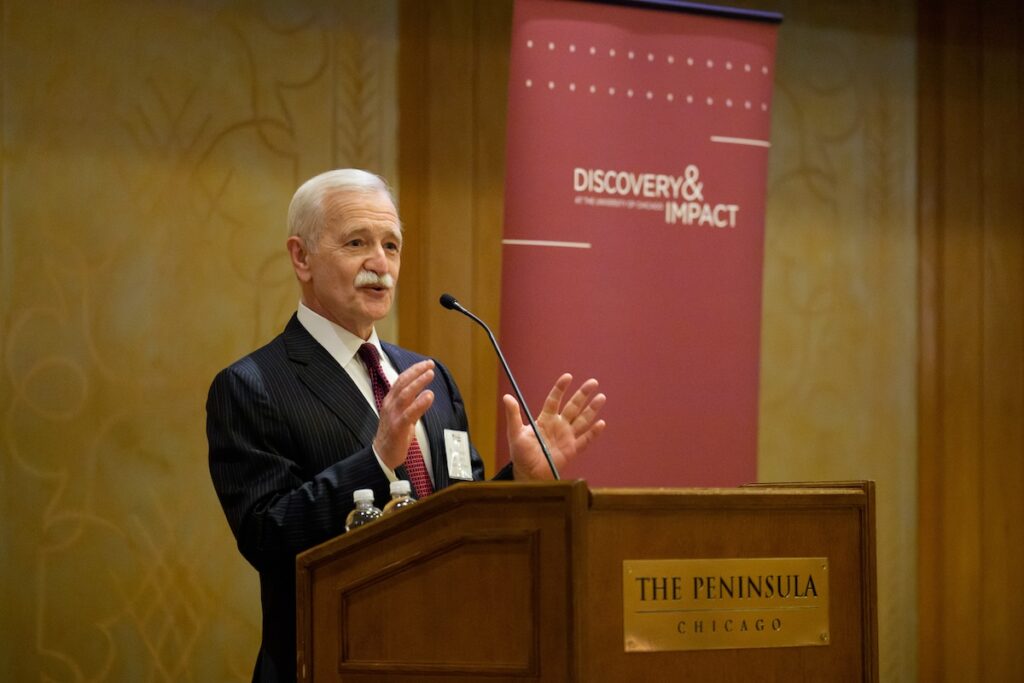A research team based at the University of Chicago has received a $10 million grant from the National Institute of Diabetes and Digestive and Kidney Diseases (NIDDK) to study the causes of inflammatory bowel disease (IBD).
The new project is a collaboration among researchers at the University of Chicago, the Marine Biological Laboratory (MBL), Argonne National Laboratory, Michigan State University, the University of Michigan and Harvard University. The NIDDK, a division of the National Institutes of Health (NIH), awarded the five-year grant through its RC2 program to fund high impact, interdisciplinary science to develop new technology and generate data and research methods that are useful to the broader scientific community.
The researchers are studying the causes of IBD using an array of technologies built to analyze the gut microbiome and genetics of human patients with a condition known as pouchitis. Some patients with severe ulcerative colitis, a form of IBD, undergo surgery to remove part or all of their colons. During this procedure, surgeons create an ileal pouch, or artificial rectum, out of remaining small intestine tissue. Roughly half of these patients eventually develop pouchitis, or inflammation of the new ileal pouch.
The sequence of events that leads to pouchitis creates a unique opportunity for researchers to study its development. Because these patients are already being treated for ulcerative colitis, their physicians can collect tissue, blood and microbiome samples before and after surgery to analyze over time as the disease progresses, and to compare with patients who don’t develop pouchitis.
“This is the only model where we can actually see what events occur at the genetic, molecular and microbiome level before the disease happens,” said Eugene B. Chang, MD, Martin Boyer Professor of Medicine at UChicago and one of the principal investigators for the project. “This may be the only way to gain significant insight to really move the needle in this area.”
Enormous complexity across oceans and the human body
The project is the result of a long collaboration between Chang and microbiologist Mitchell Sogin, PhD, a Distinguished Senior Scientist at MBL in Woods Hole, Mass. Sogin’s work focuses on microbial ecology, studying how microbes evolve within their community and their relationship to the environment. Many of the tools Sogin has developed over the years to analyze the genetic sequence data of millions of microbes from the ocean work just as well on samples taken from the human gut. These same tools can be used to identify rare or unusual strains of bacteria that could be linked with disease.
“There is enormous complexity in microbial communities in the human body and even greater complexity in the ocean,” Sogin said. “The question becomes then, why? Where did that complexity come from? What are they doing for us? What are they doing for the oceans? So the field sites are very, very different, but the questions are fundamentally the same.”
Chang and Sogin have been working with computer scientist and microbiologist A. Murat Eren, PhD, an MBL Fellow now based at the UChicago Department of Medicine, to analyze microbiome samples and genetic data taken from patients at many points in time during their treatment. Eren developed a software platform called anvi’o to help scientists visualize multiple, large sets of genetic and molecular data in an easy-to-use, interactive display.
Software helps scientists visualize multiple, large sets of genetic and molecular data in an easy-to-use, interactive display.
So far, they have identified two species of bacteria, Bacterioides fragilis and Bacterioides ovatus, that could play a key role in the development of pouchitis. These two bacteria are normally present in the body, so-called “commensal” bacteria that happily coexist with all the other microbes living in a healthy gut. But for some reason, they can become extremely virulent in some patients and trigger inflammation in the ileal pouch. In some cases, B. fragilis can bloom to take over 70% of the gut microbiome in patients right before they develop pouchitis.
Chang says he believes there must be something about the inherent genetics of the patient, coupled with the strange new environment of the artificial pouch, that causes these microbes to trigger their own genetic defense mechanisms to survive. They are not classic pathogens like Salmonella or norovirus; Instead, they’re relatively benign bacteria that happen to be carrying nuclear codes in case of emergency.
“These microbes are really clever. They have the ability to turn on these genes that aren’t normally expressed, but they use them only when they have to,” he said. “They’re perfectly happy living with us until something occurs that threatens them, then they create Armageddon so they can survive that environment and their competitors cannot.”
Finding out which part of the patient’s genetic profile makes them susceptible to this chain of events is another important piece of the puzzle to be solved by a team of researchers that demonstrates the breadth of the project at UChicago: clinical physicians and IBD experts David T. Rubin, MD, and Sushila Dalal, MD; colorectal surgeons Neil Hyman, MD, and Ben Shogan, MD; molecular engineers Jun Huang, PhD, and Savas Tay, PhD; and geneticists Oni Basu, PhD, and Sebastian Pott, PhD. In addition, microbiologists Sean Crosson, PhD, formerly of UChicago and now at Michigan State, and Dionysios Antonopoulos, PhD, Interim Division Director of Biosciences at Argonne, are contributing their expertise.
Building tools to change understanding of disease
By applying next generation technologies to study the genetic and functional properties of individual cells and microbes from human IBD specimens, these investigators will disentangle the complexities of events that cause the disease. The human gut is made up of many different cell types. Analyzing individual cells from biopsies taken from various places in the gut, and at different times during the course of the disease, will help the team understand how these cells — and perhaps their unique genetic expression — interact with the gut microbiome.
This work will help develop a biomarker, a genetic or microbial signature that physicians can test to see if a patient is susceptible to developing pouchitis. Chang’s lab, lead by immunologist and project manager Candace Cham, PhD, is also developing gut organoids, small clusters of cells grown from biopsy samples. These miniature organs can serve as proxies for the patients’ own tissues at distinct points in time or stages of disease. The researchers can then rapidly test multiple drugs on the organoids to see how they respond, or study how they interact in combination with various microbes — a new form of personalized medicine that will help doctors decide what medications a patient should get and which ones would work best.
Chang believes the discoveries made thus far extend beyond the unique circumstances of pouchitis to other forms of IBD, and even to other autoimmune diseases or food allergies.
“I think this explains why not everybody who has a gene variant that’s associated with risk for IBD actually gets IBD,” he said. “Often there’s a history in an IBD patient’s course where they have some kind of event, like a bout of gastroenteritis or exposure to antibiotics, that triggers their disease.”
The various tools and techniques being developed for this project have the potential to change our understanding of these diseases, Chang says.
“What we’re doing is unprecedented. We have technology and software that no one else is using because we made it ourselves,” he said. “If we’re right, our findings will be paradigm shifting in ways that will change concepts and best practices relevant to many complex immune disorders.”
Originally published on UChicagoMedicine.org




